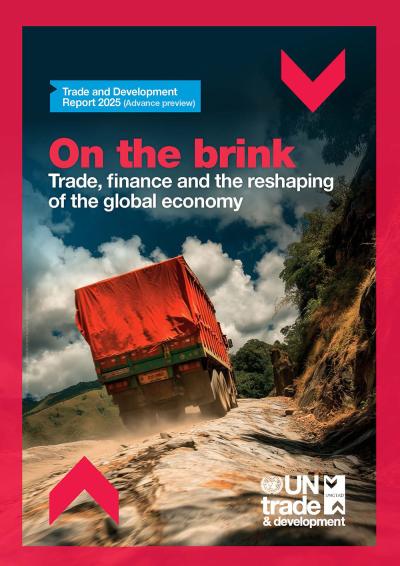
The year 2025 marks a turning point for globalization. Trade and finance are increasingly interdependent, requiring fresh thinking on global governance and an inclusive financial architecture.
Ahead of the launch of the Trade and Development Report 2025 in November, UN Trade and Development (UNCTAD) has released an advance preview featuring key insights from the report.
“The coming months will test whether the global community can rise to the challenge – reshaping trade and finance to serve people, planet and prosperity.”
Setting the stage
A century after the Great Depression, tariffs have once again taken centre stage in global policy debates. Rising trade barriers and geopolitical tensions are straining multilateral norms and weighing on global economic prospects.
Global output growth continues to lag behind pre-pandemic trends. Despite momentary resilience in early 2025, momentum remains fragile and clouded by uncertainty. Investor anxiety has boosted financial markets, but not productive investment.
The trade front
Pre-tariff front-loading and AI-related investment temporarily lifted merchandise trade in late 2024 and early 2025. World trade expanded by around 4% in the first half of 2025, though underlying growth was closer to 2.5–3% once temporary factors are excluded.
As tariffs take hold and front-loading fades, trade could slow markedly into 2026. Low-income economies and small enterprises are most exposed, as limited access to finance and persistent uncertainty about market access hamper long-term planning and investment.
The finance connection
As value chains evolve, the financialization of trade deepens. Over 90% of world trade depends on the infrastructure of global finance. Monetary policies, exchange rate movements and investor sentiment transmit quickly through the global financial system, shaping trade flows and industrial production.
The Trade and Development Report 2025 will highlight how the financial system both enables and constrains trade. Ignoring these financial linkages risks policy blind spots in addressing trade turbulence.
The global cycle
Trade and finance move together. The global financial cycle generates powerful swings in credit, capital and risk appetite that ripple across world trade. Volatility in financial markets often translates into disruptions in trade volumes.
Policy uncertainty, while off its 2020 highs, remains elevated. Persistent uncertainty impairs investment, job creation and export performance, particularly in developing economies.
The road ahead
The report calls for coordinated national and international action to:
- Boost fiscal revenues and domestic resource mobilization
- Deepen regional integration to diversify productive structures
- Improve macro-financial resilience and avoid financial fragmentation
- Rebuild inclusive multilateralism to sustain growth, reduce asymmetries and address climate challenges





